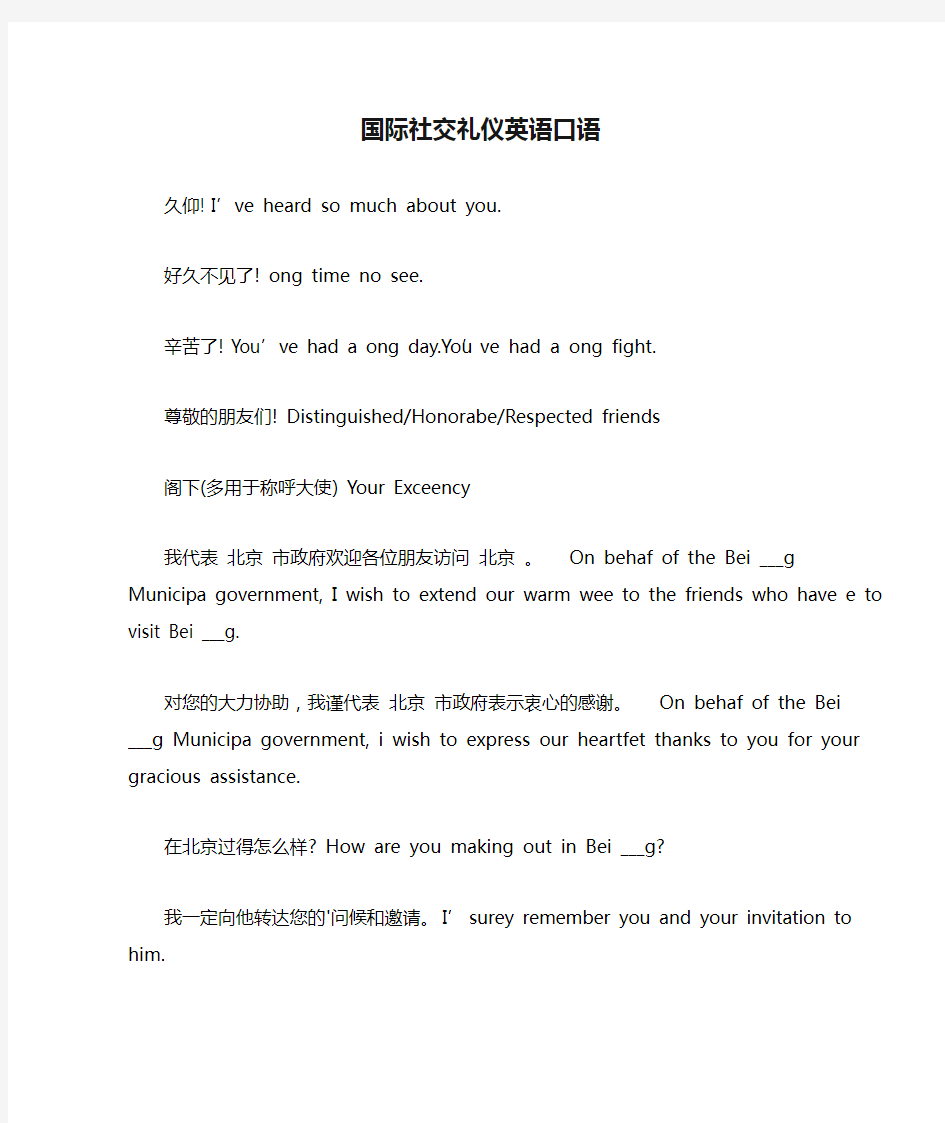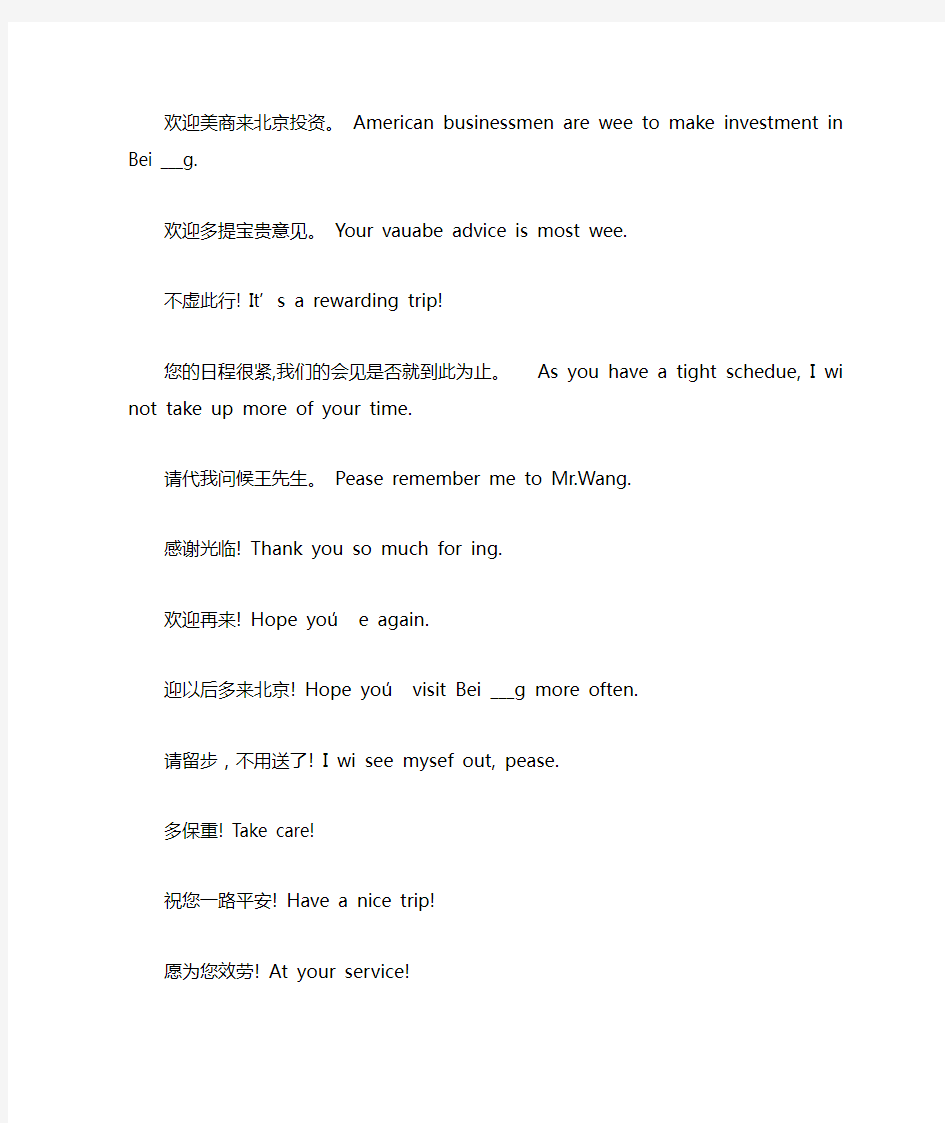

国际社交礼仪英语口语
久仰! I’ve heard so much about you.
好久不见了! ong time no see.
辛苦了! You’ve had a ong day.You’ve had a ong fight.
尊敬的朋友们! Distinguished/Honorabe/Respected friends
阁下(多用于称呼大使) Your Exceency
我代表北京市政府欢迎各位朋友访问北京。 On behaf of the Bei ___g Municipa government, I wish to extend our warm wee to the friends who have e to visit Bei ___g.
对您的大力协助,我谨代表北京市政府表示衷心的感谢。 On behaf of the Bei ___g Municipa government, i wish to express our heartfet thanks to you for your gracious assistance.
在北京过得怎么样? How are you making out in Bei ___g?
我一定向他转达您的'问候和邀请。 I’ surey remember you and your invitation to him.
欢迎美商来北京投资。 American businessmen are wee to make investment in Bei ___g.
欢迎多提宝贵意见。 Your vauabe advice is most wee.
不虚此行! It’s a rewarding trip!
您的日程很紧,我们的会见是否就到此为止。 As you have a tight schedue, I wi not take up more of your time.
请代我问候王先生。 Pease remember me to Mr.Wang.
感谢光临! Thank you so much for ing.
欢迎再来! Hope you’ e again.
迎以后多来北京! Hope you’ visit Bei ___g more often.
请留步,不用送了! I wi see mysef out, pease.
多保重! Take care!
祝您一路平安! Have a nice trip!
愿为您效劳! At your service!
为…举行宴会/宴请 Host a dinner/banquet/uncheon in honor of …
欢迎宴会 Wee dinner
便宴 Informa dinner
午宴(附有情况介绍或专题演讲等内容) uncheon
便餐 ight mea
工作午餐 Working uncheon
自助餐 Buffet dinner/uncheon
答谢宴会 Return dinner
告别宴会 Farewe dinner
庆功宴 Gee feast
招待会 Reception
庆祝中华人民 ___成立四十五周年招待会 Reception Ceebrating the 45th Anniversary of the Founding of the Peope’s Repubic of China
鸡尾酒会 Cocktai party
茶话会 Tea party
包餐/点餐 Tabe d’hote/a a carte
上菜 Serve a courts
您的位置在这里。 Here is your seat.
请入席! Pease have a seat.
欢聚一堂 Enjoy this happy get-together
请随便! Pease yoursef at home./Pease enjoy yoursef.
请各位随意用餐。 Hep yoursef pease.
您喝点什么? What woud you ike to drink?
现在我提议,为了…和…之间的合作,为了…参议员的健康,干杯! At this point, I propose a t
模板,内容仅供参考